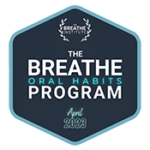If you have ever seen a young child sucking their thumb, there is a chance it began around the time they were weaned off of a pacifier. When newborns begin feeding, the act of sucking is associated with being calmed down and receiving nutrients. The motion actually releases endorphins in the brain, which alone can be addictive. This is why babies and toddlers use binkies to self-soothe, especially if they are anxious or have trouble sleeping.
Therefore sometimes for comfort, children will suck their thumbs after their pacifier has been taken away, even if it’s just in their sleep (often they will have been aware of not doing it in public and so they only resort to it only at night).

The issue is that sometimes these habits can take several years to break – it is not unheard of that a thumb-sucker can continue up into their teens! This can cause multiple jaw issues later in life, as the teeth will rarely line up. Many require oral surgery; and not just for cosmetic reasons. This is because the thumb rests on the lower teeth forcing them in along with the sucking motion, and causes the upper teeth to grow forward because of the thumb being sucked to the roof of the mouth. Therefore, it creates a huge gap between the upper and the lower; often referred to as an “open bite”. If the addiction is even more severe, it can cause even skeletal damage.
How Do You Stop It?
1. Whenever you notice your child has not sucked their thumb in a while, be sure to point it out to them and praise them for it.
2. The next time you are at the dentist, have them explain to your child the medical reasons they should not suck their thumb and what could happen if they continue to.
3. There is a bitter liquid medication that can be prescribed by a pediatrician that is used to coat your child’s thumb so that it is gross to the taste.
4. If none of the above work, in a worse case scenario, secure socks over your child’s hands at night so they will not even be able to suck their thumb subconsciously.
Thumb-sucking is a very normal and comforting mechanism for kids, but if not stopped early can easily carry on into elementary age, and, with very few, into teens and adulthood. Most kids automatically give it up before age 4 or 5, and by this time it should have no permanent affect on adult teeth. If your child is older and still struggles with not sucking, ask your doctor or pediatric dentist how much it might be affecting their mouth development and what measures can be taken for them to stop.










